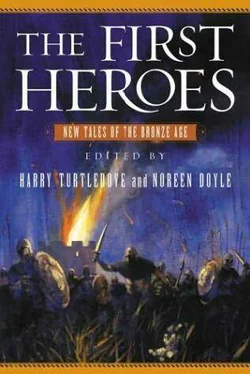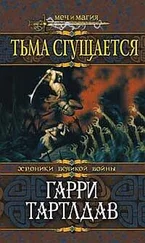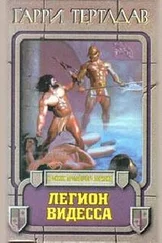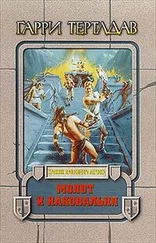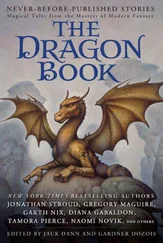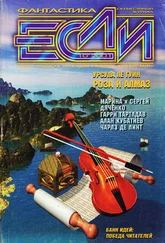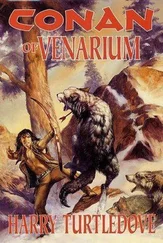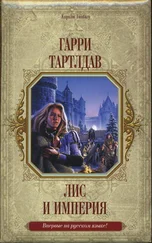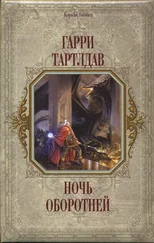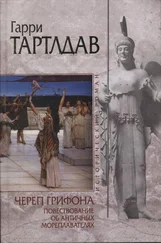Гарри Тертлдав - The First Heroes
Здесь есть возможность читать онлайн «Гарри Тертлдав - The First Heroes» весь текст электронной книги совершенно бесплатно (целиком полную версию без сокращений). В некоторых случаях можно слушать аудио, скачать через торрент в формате fb2 и присутствует краткое содержание. Жанр: Фантастика и фэнтези, на английском языке. Описание произведения, (предисловие) а так же отзывы посетителей доступны на портале библиотеки ЛибКат.
- Название:The First Heroes
- Автор:
- Жанр:
- Год:неизвестен
- ISBN:нет данных
- Рейтинг книги:3 / 5. Голосов: 1
-
Избранное:Добавить в избранное
- Отзывы:
-
Ваша оценка:
- 60
- 1
- 2
- 3
- 4
- 5
The First Heroes: краткое содержание, описание и аннотация
Предлагаем к чтению аннотацию, описание, краткое содержание или предисловие (зависит от того, что написал сам автор книги «The First Heroes»). Если вы не нашли необходимую информацию о книге — напишите в комментариях, мы постараемся отыскать её.
The First Heroes — читать онлайн бесплатно полную книгу (весь текст) целиком
Ниже представлен текст книги, разбитый по страницам. Система сохранения места последней прочитанной страницы, позволяет с удобством читать онлайн бесплатно книгу «The First Heroes», без необходимости каждый раз заново искать на чём Вы остановились. Поставьте закладку, и сможете в любой момент перейти на страницу, на которой закончили чтение.
Интервал:
Закладка:
We came home not only to rejoicing but to astonishment. Most of the hes we left behind on setting sail in the Chalcippus had expected to see us no more. Many of the shes we left behind also expected to see us no more. That led to several surprises and considerable unpleasantness, none of which deserves recounting here.
It often seemed as if the tin we brought home was more welcome than we were. Few cared to listen to our tales of the great stone circle or of the strange mans who had built it. The fauns, the sirens, the lotus-eaters we centaurs already knew. The stay-at-homes were glad enough to hear stories about them.
Certainly the smiths welcomed the tin with glad cries and with caracoles of delight. They fell to work as if made of bronze themselves. We have a sufficiency of copper—more than a sufficiency—for we trade it with folk whose land gives them none. But tin is far less common and far more dear; were it otherwise, we would not have needed to fare so far to lay hold of it.
Spearheads and shields and swords and helms began to pile up, ready for use against the sphinxes or whoever else should presume to trouble us. Now we could match bronze against bronze, rather than being compelled to use the softer copper unalloyed. Some of the younger hes quite looked forward to combat. That far I would not go. I have seen enough to know that combat too often comes whether we look for it or not; what point, then, in seeking it?
The smiths also made no small stock of less warlike gear. I speak of that less not because I esteem it less, but only because, when bronze is not measured against bronze, its hardness as compared to copper's is of less moment.
Not too long after our return, I learned that we in the Chalcippus were not the only band of centaurs to have set out in search of tin. A he named Pholus had led a band north by land. There are mountains in those parts that yield gold and silver, and Pholus hoped he might happen upon tin as well.
Although those mountains are not far as the raven flies, our folk seldom go there. The folk who live in those parts are strange, and strangely fierce and formidable. They come out only at night, and are often in the habit of drinking the blood of those they kill. And they are persistent of life, though sunlight, curiously enough, is alleged to slay them.
This Pholus affirmed for me, saying, "After we caught a couple of them and staked them out for the sunrise, the others proved less eager to see if they could sneak up and murder us by the light of the moon."
"Yes, I can see how that might be so," I told him. "Good for you. But I gather you found no tin?"
"I fear me we did not," he agreed. "It is a rich country. Were it not for these night skulkers, we could do a great deal of trade with it. They care nothing for bargaining, though. All they want is the taste of blood in their mouths." His own mouth twisted in disgust.
"Many good-byes to them, then," I said. "Maybe we ought to send a host up that way, to see how many we could drag out for the sun to destroy." "Maybe." But Pholus did not sound as if he thought that a good idea. "If we did not get rid of them all, they would make us pay. And besides—" He did not go on.
"Besides, what?" I asked when I saw he would not continue on his own.
He did not answer for a long time. I wondered if he would. At long last, he said, "I swore my hes to secrecy, Cheiron. I did not take the oath myself, for I thought there was no need. I knew I could keep a secret. Perhaps the gods foresaw that I would need to speak one day, and did not want me forsworn. I know you can also hold a secret close at need. The need, I think, is here. I have heard somewhat of your voyage, and of the peculiar folk you met on the Tin Isle."
"The mans?" I said, and he nodded. "Well, what of them?"
"That is the secret we are keeping," Pholus replied. "Up in the mountains, we met some of what I think must be the same folk ourselves. They were coming down from the north, as much strangers in those parts as we were. They did not call themselves mans, though; they had another name."
"Why did you keep them a secret?" I asked.
He shivered. Pholus is bold and swift and strong. I had never thought to see him afraid, and needed a moment to realize that I had. "Because they are . . . what we ought to be," he answered after another long hesitation. "What we and the satyrs and the sphinxes and those troublesome blood-drinkers ought to be. They are . . . all of a kind, with more of the stuff of the gods and less of the beast in them than we hold."
I knew what he meant. I knew so well, I had to pretend I knew not. "More of the gall of the gods, if they truly are like the mans I met," I said. "And that," he agreed. The hard, bright look of fear still made his eyes opaque. "But if they are coming down from the north—everywhere from the north—how shall any of the folk around the Inner Sea withstand them?"
I had wondered that about the mans, even on the distant Tin Isle. If they had also reached the mountains north of our own land, though, there were more of them than I had dreamt, and the danger to us all was worse. I tried to make light of it, saving, "Well, the blood-drinkers may bar the way."
Pholus nodded, but dubiously. "That is the other reason I would not go after the blood-drinkers: because they might shield us. But I do not think they will, or not for long. The new folk have met them, and have plans of their own for revenge. Do you think the night-skulking blood-drinkers can oppose them?"
"Not if they are mans of the same sort I knew," I said. "Are you sure they are the same? What did they call themselves?"
"Lapiths," he answered. The name meant nothing to me then. But these days the echoes of the battle of Lapiths and centaurs resound round the Inner Sea. We are scattered to the winds, those few left to us, and the Lapiths dwell in the land ours since the gods made it. And Pholus knew whereof he spoke. The Lapiths are mans. They remain sure to this day that they won simply because they had the right to win, with no other reason needed.
They would.
The Indo-European-speaking ancestors of the Hittites probably brought their culture into Anatolia during the late third millenium B.C. After several hundred years, their descendants established an empire that rivaled and sometimes destroyed other, older Near Eastern kingdoms until they themselves fell to foreign enemies at the end of the Bronze Age. Despite their ancient (and modern) reputation as warriors, their culture was first and foremost agricultural. They were also literate, and among the Hittite texts is the story of one Hupasiya summoned to aid the gods. The original text is, like so many others from antiquity, broken, and the ending is lost, but Josepha Sherman, with her expertise in folklore and the ancient world, here attends to that.
A Hero for the Gods
Josepha Sherman
Hupasiya stepped out of his farmhouse, then stopped dead, grabbing for his old woolen mantle and hastily wrapping it around himself. Gods, it was cold out here!
He still looked very much like the true Hittite warrior he'd been just a few short years ago: burly and muscular, black of curly hair and beard, with a narrow scar like a white blaze of lightning seaming his face. His bronze sword hung on a wall inside, and he still kept it polished and oiled as befitted a good blade. But the battles he fought these days were only with the fields and the harvests, and no regrets about it.
Almost no regrets, he corrected wryly. Springtime—ha. Not a touch of softness to the biting air, not a hint of greenery poking up out of the frozen fields. And the snow on the towering mountains of Anatolia all about him hadn't even begun its retreat up to merely cap them, but still gleamed blazing white halfway down the slopes.
Читать дальшеИнтервал:
Закладка:
Похожие книги на «The First Heroes»
Представляем Вашему вниманию похожие книги на «The First Heroes» списком для выбора. Мы отобрали схожую по названию и смыслу литературу в надежде предоставить читателям больше вариантов отыскать новые, интересные, ещё непрочитанные произведения.
Обсуждение, отзывы о книге «The First Heroes» и просто собственные мнения читателей. Оставьте ваши комментарии, напишите, что Вы думаете о произведении, его смысле или главных героях. Укажите что конкретно понравилось, а что нет, и почему Вы так считаете.
